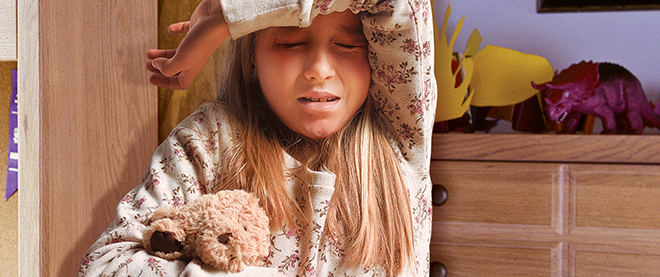When the bully is your other kid
Sisters squabbling is one thing, but real cruelty from a sibling can be scarring
Photo illustration by Sarah MacKinnon
Share

For years, Nancy Kilgore shared a bedroom with an older sister who terrorized her when her parents weren’t watching. The older sister, often put in charge to babysit, insulted her, threw objects at Nancy and physically pinned her down. One time, her sister stuffed marbles up her nostrils. Then she pinched her nostrils, forced her head backward and poured water into her mouth. Another time, when Nancy was 10 and her sister was 12, the sister held a pillow over Nancy’s face to the point of near-suffocation.
Kilgore was so scarred by her years of mistreatment that she eventually sought help for post-traumatic stress disorder. Now in her 60s, Kilgore opens up about the experience in her memoir called Girl in the Water: A True Story of Sibling Abuse. “This is a taboo topic, absolutely taboo,” she said on the phone from her home in Sacramento, Calif. But Kilgore insists it’s a problem that affects millions of North Americans. Her Twitter account buzzes with comments from other victims, though convincing these people to talk publicly is difficult. Kilgore has also heard countless accounts at siblingbullies.com, the website she founded to connect victims, and where she offers advice to parents on how to prevent abuse.
Brenda Volling, a professor of psychology at the University of Michigan who studies jealousy between siblings, defines sibling abuse as one child repeatedly exerting power over the other with the intent to cause harm. The abuse can be physical, emotional, or even sexual. “Emotional and psychological abuse, this is the abuse most parents don’t recognize or see as occurring, and are most likely to confuse with normal sibling rivalry,” she says. “It includes such acts of cruelty as belittling and ridiculing, showing some kind of contempt or trying to degrade the other person.” Kilgore notes that sibling abuse typically involves an older sibling, often male, picking on a younger one, and is most common in homes where one parent is not present due to divorce or mentally absent for a variety of reasons, and extra responsibility is given to the oldest child. “The researchers say that the majority of children who abuse their siblings are not psychotic; they’re not maladapted mentally,” she says. “Basically, they’ve been overloaded with responsibility. It’s accepted in many cultures that the oldest child gets the biggest responsibility, but it’s important to look at what this does to a child.”
Kilgore’s own overwhelmed mother needed help with her two younger daughters, and instructed the first-born to look after Nancy. “Comb your sister’s hair and button her dress,” the sister was told. Resentful of being snapped at by a preoccupied mom, the oldest sister yanked on Nancy’s scalp, pulling out clumps of hair. “My mother wanted a loving family but had no idea how to accomplish this goal, so she prohibited any disagreements between my sister and me,” writes Kilgore, who knows how the issue can tear apart a family. When her mother read the first chapter of her memoir, her first comment was, “Would you take a lie detector test?” Kilgore took the test and passed it, she says, but has become estranged from her unbelieving mother and sisters.
Over the phone, Kilgore stressed the need for parents to investigate what’s going on between siblings. “Inspect the covert underworld of what children go through in the same bedroom. Put an ear up to the wall. They need to go in there. They need to separate the children on a weekly basis and interview them and say, ‘Are there any secrets?’ ”
When Kilgore’s sister threw a brass piggybank at her head hard enough to cause bleeding, the sister threatened more violence if she squealed. Kilgore kept quiet, but admitted last week in an interview, “I probably would have told if my mother had said, ‘Let’s agree on how to get along. When you’re angry, I want you to come to me. I want to know what’s going on. I’m going to figure out who is going to get punished, and there are going to be consequences in this house if you do anything that’s hurtful to the other child.’ ”
Kilgore advises parents not to favour one child over the other. “It’s almost impossible not to have favourites,” she tells parents, “but try not to give more attention to one child.”